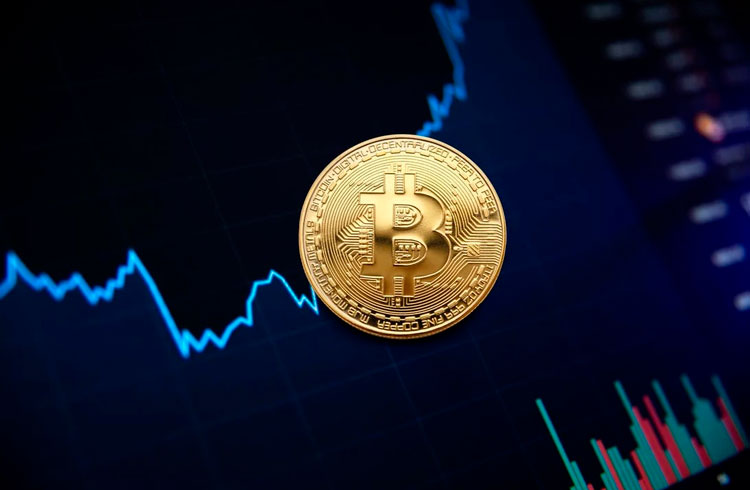Table of Contents
Satoshi Nakamoto is a mysterious person or group that published Bitcoin’s whitepaper in 2008 and launched its first blockchain in 2009. Bitcoin revolutionized finance, decentralization, and the digital economy. Given its impact, there is ongoing speculation about whether Satoshi Nakamoto deserves a Nobel Prize, and if so, in which category.
In this article, we will examine arguments for and against awarding Nakamoto a Nobel Prize and the implications this would have for the Nobel Foundation and the cryptocurrency community. Additionally, we will focus on the broader effects of Bitcoin on the global economy, political systems, and technological progress.
History and Impact of Bitcoin
Bitcoin emerged during the global financial crisis of 2008, when centralized banking systems failed and many people sought alternative ways to store and transfer wealth. Bitcoin provided a solution to these issues by offering a decentralized, censorship-resistant, and transparent system based on blockchain technology.
Since its inception, Bitcoin has gone through many phases. Initially, it was used primarily within tech communities, later gaining popularity among libertarians and individuals seeking alternatives to traditional banking services. Today, Bitcoin is regarded as digital gold and an investment asset, with a fluctuating value but growing importance in the economy.
Arguments for Awarding the Nobel Prize
1. Revolution in Economics and Finance
Bitcoin transformed the way we understand and use money. It introduced a new form of digital asset that does not require intermediaries like banks and is resistant to inflation and censorship. This concept is comparable to other major economic innovations that have been recognized with the Nobel Prize.
Bitcoin has enabled financial inclusion for millions of people who lack access to traditional banking services. Especially in developing countries, it has become a tool to protect savings from hyperinflation and currency devaluation.
2. Cryptography and Security
Satoshi Nakamoto combined various cryptographic technologies, such as Proof of Work, digital signatures, and hashing, to create a secure and decentralized network. These technologies pushed the boundaries of cryptography and inspired further research in distributed systems.
Thanks to blockchain technology, new possibilities have emerged in smart contracts, decentralized finance (DeFi), and asset tokenization. These innovations would not have been possible without Bitcoin as a pioneer of decentralized systems.
3. Political and Social Impact
Bitcoin has had a significant impact on financial freedom and democratizing access to money. In countries with high inflation and failing banking systems, Bitcoin serves as a way to escape into a more stable currency.
For example, in Venezuela, Lebanon, and Zimbabwe, Bitcoin has become a key tool for preserving value, as local currencies have lost their purchasing power. People can use Bitcoin to protect their savings and conduct international transactions without government interference.
Arguments Against Awarding the Nobel Prize
1. Anonymity
Satoshi Nakamoto is anonymous, and the Nobel Prize cannot be awarded to an unknown person or group. The Nobel Foundation requires that recipients be living individuals whose identity can be confirmed.
It is unclear whether Satoshi Nakamoto is still alive, and if so, whether he would want to come out of anonymity. If his identity is never revealed, awarding the prize would be practically impossible.
2. Ethical Concerns
Cryptocurrencies like Bitcoin are often criticized for their role in illegal activities, such as money laundering and drug trafficking. Although Bitcoin is not exclusively used for illegal purposes, its decentralized nature is problematic for some.
On the other hand, cash (such as the US dollar) is also frequently used for illegal transactions, yet there is no debate about criminalizing it.
3. Nobel Prize in Economics vs. Technological Innovation
Some argue that Bitcoin is more of a technological than an economic innovation, meaning Nakamoto should receive a different award, such as the Turing Award.
The Nobel Prize in Economics is traditionally awarded to academics who contribute to theoretical research. While Satoshi Nakamoto introduced a new economic paradigm, he did not publish academic papers analyzing Bitcoin’s economic implications.
Possible Solutions
- Awarding the entire team – If all individuals involved in Bitcoin’s creation could be identified, they could receive the Nobel Prize together.
- Creating a special category – The Nobel Foundation could introduce a new prize for digital innovation.
- Alternative awards – Nakamoto could receive a different prestigious prize, such as the Prince of Asturias Award or the World Technology Award.
- Recognizing the developer community – If it is impossible to award an individual, the prize could be given to the Bitcoin development community.
Why Satoshi Nakamoto Does NOT Deserve the Nobel Prize!😡
Satoshi Nakamoto is often praised as a revolutionary genius. Many argue that he deserves a Nobel Prize in Economics or even Peace. But is that really the case? In reality, there are many reasons why we should not blindly glorify Satoshi. While Bitcoin brought innovation, it also opened the door to uncontrolled speculation, massive fraud, and the black market. We must ask ourselves: Was his contribution to the world truly as positive as some believe?
Economic Turbulence
Bitcoin has caused massive economic disruptions. It created a billion-dollar market that is also one of the most volatile and dangerous for average investors. Many people fell for false promises of guaranteed profits, only to lose their savings. And what about illegal activities? Bitcoin enabled darknet markets, terrorism financing, and unprecedented tax evasion. Yet, some still try to glorify Nakamoto as a financial system savior, even though he created chaos on an unprecedented scale.
Anonymity and Secrecy
Who is Satoshi Nakamoto? Why is he hiding? If he truly created Bitcoin for the good of humanity, why would he be afraid to step forward? His disappearance raises many speculations – from being a government tool of manipulation to realizing he unleashed a dangerous monster onto the world. The Nobel Prize should be awarded to individuals who have clearly contributed to humanity, not to someone whose work has caused massive uncertainty and problems.
Environmental Impact
Bitcoin mining consumes more energy than some entire countries, with most of this energy coming from non-renewable sources. While some cryptocurrencies are transitioning to greener alternatives, Bitcoin remains inefficient and environmentally harmful. Should we really award a Nobel Prize to someone who created a system that damages the planet just for speculation and anonymous transactions?
Economic Inequality
Bitcoin was supposedly created as a tool against centralized banks and financial institutions, but in reality, it only deepened economic inequality. The majority of BTC is concentrated in the hands of a few whales, who manipulate the market and exploit uninformed investors. Instead of a decentralized financial system, we ended up with a new kind of oligarchy. Is this really the financial revolution the world deserves? If anything, Bitcoin has demonstrated that absolute decentralization without oversight leads to chaos and injustice. And for that, Satoshi Nakamoto certainly does not deserve a Nobel Prize.
Conclusion
The debate over whether Satoshi Nakamoto deserves a Nobel Prize will likely continue for a long time. Bitcoin has changed the way we perceive money and has inspired countless other projects in decentralization and cryptography. Whether Nakamoto is ever identified or not, his legacy is undeniable, and his innovations will shape the future of humanity.



























